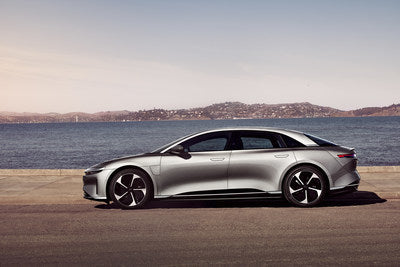Turbulenzen auf dem globalen Automobilmarkt
Die Trump-Regierung hat die internationale Automobilindustrie bereits durch abrupte Zölle und unvorhersehbare Maßnahmen zur Ausbremsung der chinesischen Automobilproduktion erschüttert. Zwar ist das erklärte Ziel die Rückverlagerung amerikanischer Arbeitsplätze , doch die Folge ist Instabilität für die Hersteller weltweit, die sich mühsam an die ständig wechselnden Vorschriften anpassen müssen.

Ein überraschender Vorschlag im US-EU-Abkommen
Inmitten dieser Unsicherheit verhandeln die USA und die Europäische Union über ein neues Handelsabkommen. Ein Detail sticht dabei hervor: die mögliche Vereinheitlichung der Fahrzeugvorschriften in beiden Märkten. Dieser Schritt ist beispiellos und könnte, sollte er umgesetzt werden, die Elektrofahrzeuglandschaft in beiden Regionen dramatisch verändern.
Das Weiße Haus hat diese Idee vor allem aufgrund der schlechten Verkaufszahlen amerikanischer Pickups in Europa vorangetrieben. Experten argumentieren jedoch, dass die Zölle nicht das eigentliche Problem seien – europäische Käufer wollen schlicht keine sperrigen, teuren Trucks , die in dichten Städten unpraktisch sind. Stattdessen könnte es zu einer Renaissance kleinerer, erschwinglicherer Autos auf dem US-Markt kommen.
Warum Standards für Elektrofahrzeuge wichtig sind
In der Vergangenheit zwangen US-amerikanische Crash- und Sicherheitsvorschriften die Autohersteller dazu, ihre Fahrzeuge speziell für den amerikanischen Markt umzugestalten – ein kostspieliger Prozess , der viele Kleinwagen aus dem Verkehr zog. Die verlängerte Frontpartie des inzwischen eingestellten Honda Fit ist ein Beispiel dafür. Würden die Standards angeglichen, könnten europäische Elektrofahrzeuge leichter in die USA gelangen, zumal Elektrofahrzeuge die Emissionshürden herkömmlicher Autos umgehen .
Doch nicht alle sind davon überzeugt. Europäische Regulierungsbehörden befürchten, dass ihre fußgängerfreundlichen Sicherheitsvorschriften im Widerspruch zu US-amerikanischen Normen stehen, insbesondere angesichts der massiven amerikanischen Lastwagen mit ihren hohen, flachen Frontpartien, die eine Gefahr für Fußgänger darstellen. Hinzu kommen Zölle auf ausländische Autos und Beschränkungen für Batterien aus China, die die Lage weiter verkomplizieren könnten, obwohl Europa versucht, seine Abhängigkeit von chinesischen Lieferketten zu verringern.

Politische Unsicherheit und Auswirkungen auf die Verbraucher
Die US-Regierung hat offiziell ihre Absicht erklärt, europäische Standards anzuerkennen . Sie behauptet, die Zusammenarbeit werde den transatlantischen Markt stärken. Ob dieses Versprechen jedoch auch in die Tat umgesetzt wird, ist ungewiss. Die bisherige Bilanz der Trump-Regierung bei der Neufassung von Handelsabkommen lässt viele skeptisch werden, ob dies auch langfristig umgesetzt wird.
Sollte es tatsächlich zu einer Vereinheitlichung der Standards kommen, könnten die Amerikaner Zugang zu kompakten, preisgünstigen Elektrofahrzeugen erhalten – Autos, die derzeit auf dem US-Markt nicht erhältlich sind. Dies könnte die Auswahlmöglichkeiten der Verbraucher verändern , das Segment der Elektrofahrzeuge diversifizieren und die Einführung von Elektrofahrzeugen erschwinglicher machen .
Empfohlene Lektüre: Wird Trumps Rückzug aus der Elektroauto-Branche die USA im Bereich der sauberen Technologien zurückwerfen?








Aktie:
Changans 930-Meilen-Elektroauto setzt neue Maßstäbe – verliert Tesla seinen Vorsprung?
Porsche Cayenne EV debütiert mit rekordverdächtiger Ladeleistung von 400 kW